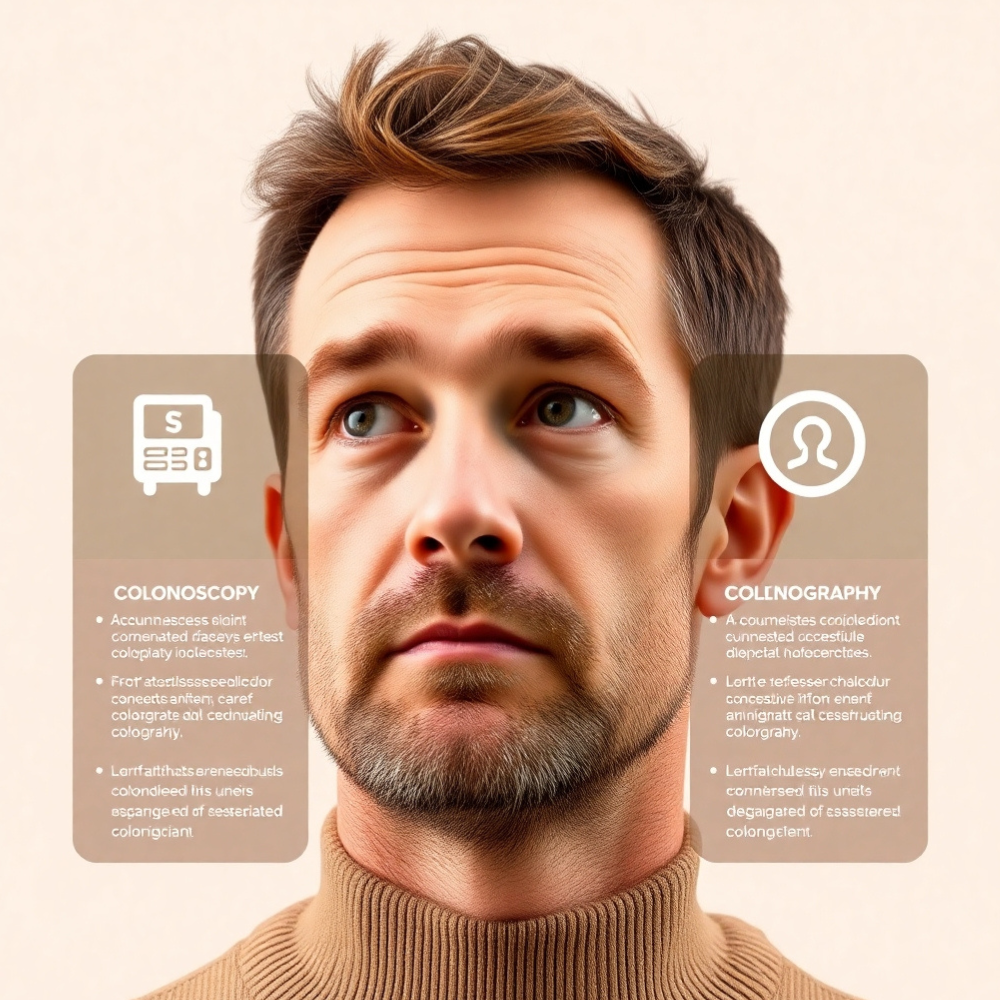
Understanding Colon Cancer Screening Guidelines: Age Recommendations and Test Options
Okay, friend, let’s be real for a second. Colon cancer screening guidelines are not exactly the most thrilling topic. No one wakes up thinking, “You know what sounds fun? A colonoscopy!” But here’s the thing—colon cancer is one of the most preventable cancers, and screening plays a huge role in catching it before it becomes dangerous.
If you’re like most people, you might not know when to start screening, which test to take, or even if it’s necessary for you (Spoiler alert: If you’re over 45, it probably is!). And hey, I get it. The idea of “prepping” for a test that involves your, ahem, backside isn’t exactly bucket-list material.
But this isn’t about discomfort—it’s about peace of mind. Colon cancer doesn’t always come with early warning signs. That’s why guidelines have shifted in recent years, lowering the recommended starting age from 50 to 45. This change wasn’t random—it was based on rising rates of early-onset colon cancer and updated research from the U.S. Preventive Services Task Force.
Stick with me—I promise to break this down in a clear, non-scary way so you can feel confident about taking control of your health. Whether you’re scheduling your first test or just want to understand your options, you’re in the right place.
Quick Summary:
Most people should start colon cancer screening at age 45. Options include colonoscopy (every 10 years), FIT (yearly), Cologuard (every 3 years), or CT colonography (every 5 years). Talk to your doctor about the best test for you, especially if you’re high-risk.

Why Colon Cancer Screening Matters
First things first—why should you care about screening? Because colon cancer doesn’t send you a memo saying, “Hey, just a heads-up, I’m setting up shop.” It develops silently, often starting as tiny polyps in your colon that take their sweet time turning into cancer. The good news? Screening catches these polyps early—sometimes before they even have a chance to become dangerous.
- If caught early, treatment is simpler, and survival rates are high.
- If caught late, the disease can spread, and treatment gets much harder.
When detected early, colon cancer has a survival rate of over 90% (American Cancer Society). That’s a big deal. And the best part? Many of the tests are quick, non-invasive, and can literally save your life with just a little planning.
Stay Ahead of Colon Cancer – Check the latest colon cancer screening guidelines from the U.S. Preventive Services Task Force to know when and how to get tested.
When Should You Start Screening?
The general guideline is age 45—even if you feel perfectly fine. That means if you’re in your mid-40s and haven’t thought about it yet, now’s the time. Colon cancer doesn’t always show symptoms early, which is why screening is so important. Catching it before it becomes a bigger issue can make all the difference.
But some people should start earlier, especially if:
Colon cancer runs in your family.
You have inflammatory bowel disease (IBD) like Crohn’s or ulcerative colitis.
You have a history of polyps or other abnormal results in past screenings.
You’ve experienced ongoing symptoms like rectal bleeding, unexplained weight loss, or chronic fatigue.
If you’re thinking, “I’m under 45, I’m good!”—not so fast. Early-onset colon cancer is rising, especially among people in their 30s and early 40s. Don’t shrug off persistent symptoms. Knowing the signs of colon cancer could help you catch it early.
Colon Cancer Screening Recommendations by Age
Under 45: No routine screening unless high-risk.
45 – 75: Regular screening is recommended.
76 – 85: Screening depends on overall health and past test results.
85+: Screening is generally not recommended, but talk to your doctor if you’re in good health.
If you’re high-risk, you may need screening earlier and more often. Your doctor can help tailor a plan based on your history and health status.
Best Tests for Colon Cancer Screening (Because You’ve Got Options!)
Colon cancer screening isn’t a one-size-fits-all situation. There are multiple ways to get checked, so if one option makes you queasy, don’t worry—there’s probably an alternative.
Colonoscopy (The Gold Standard, But… You Know)
- A doctor uses a tiny camera to check your colon for polyps and removes them if needed.
- Done every 10 years if results are normal.
- Most thorough test, detects and removes polyps in one go.
- Requires bowel prep (yes, you’ll spend some time in the bathroom), sedation, and a day off work.
- Not fun, but it’s effective—and you won’t remember a thing thanks to sedation.

Stool-Based Tests (Non-Invasive & No Prep!)
If the idea of a camera exploring your colon makes you nervous, you’re not alone. The good news? You’ve got non-invasive options that are simple, safe, and can be done from the comfort of home—no fancy prep or sedation required.
FIT (Fecal Immunochemical Test)
Detects hidden (occult) blood in your stool, which can be an early sign of colon cancer.
Recommended once a year.
No dietary restrictions or bowel prep required.
Can be done at home and mailed in.
Cologuard (DNA Stool Test)
Detects both blood and DNA changes that could indicate cancer or precancerous polyps.
Recommended every 3 years.
Also home-based, with zero prep and zero sedation.
Has a higher false-positive rate than FIT, so a follow-up colonoscopy may still be needed.
Why People Like Stool Tests
No dietary restrictions.
No sedation or time off work.
You can do it in your PJs.
But—if your test is positive, a colonoscopy is still required to confirm results and possibly remove polyps.
CT Colonography (Virtual Colonoscopy)
A high-tech option where a CT scan creates a 3D image of your colon.
Recommended every 5 years.
It’s non-invasive and doesn’t require sedation.
However:
You still have to do bowel prep (yes, the infamous colon-cleanse drink).
If polyps or abnormalities are found, you’ll need a standard colonoscopy afterward.
If you want the most thorough option from the get-go, go with a colonoscopy—it’s the gold standard. But if you prefer non-invasive and easy, stool tests are a fantastic place to start.
And if you’re wondering whether your daily diet could be working for you—or against you—when it comes to cancer prevention, you’re onto something big. Food choices can absolutely impact your colon cancer risk and even influence how well certain screening tests perform. For a refreshing take on the power of nutrition in cancer prevention, check out How Food Affects Breast Cancer: What Every Woman (and Man) Should Know. It’s full of relatable tips that apply to all types of cancer, not just breast—and it might just change how you look at your next meal.

How to Prepare for Colon Cancer Screening
If you’re doing a colonoscopy or CT colonography, here’s what to expect:
You’ll need to do a bowel cleanse, which means drinking a solution that turns your toilet into a crime scene. It’s not glamorous, but it clears the way for the doctor to get a clear view of your colon.
Stick to clear liquids the day before—think broth, apple juice, and popsicles (just avoid red or purple ones, since they can mimic blood in the test results).
Plan for a rest day. You’ll be sedated during the procedure, so you’ll need someone to drive you home afterward (and no, ride shares don’t count—you need a buddy you trust).
If you’re doing a stool-based test like FIT or Cologuard, congratulations—you’ve got it easy! Just follow the kit instructions at home. These tests are a great starting point for early detection, especially if you’re not quite ready to schedule a colonoscopy. They’re simple, non-invasive, and can give you peace of mind. If you’re wondering whether you’re at higher risk, this guide breaks it down so you can take control.
What Happens After Screening?
Once your colon cancer screening is complete, what comes next depends on your results:
If your test is negative, you’re in the clear until your next scheduled screening. How long that is depends on the test—colonoscopy usually means a 10-year gap, while stool-based tests may be repeated every 1–3 years.
If polyps are found, don’t jump to conclusions. Most polyps are harmless. Your doctor will remove them during the colonoscopy and send them to a lab for analysis. Based on the type, size, and number, they’ll set up a personalized follow-up plan.
If you had a positive stool test, it doesn’t mean you have cancer—it just means further testing is needed. A colonoscopy is the next step to check for polyps or anything unusual.
If there’s concern about family history, your doctor might evaluate your genetic risk—especially if conditions like Lynch syndrome run in your family—and adjust your screening plan accordingly. If you’re curious about how other cancers get detected and tracked, this guide to blood cancer symptoms and early detection offers insights into the bigger picture of proactive cancer screening.
Early detection saves lives. Staying informed and proactive helps you stay one step ahead.

FAQs About Colon Cancer Screening
At what age should you start screening for colon cancer?
Most people should begin screening at age 45, but if you have risk factors—like a family history or inflammatory bowel disease—you may need to start earlier. It’s always best to talk to your doctor.
Is a colonoscopy the only option?
Nope! Colonoscopy is the most thorough, but there are excellent alternatives like stool-based tests (FIT or Cologuard) and CT colonography. These non-invasive tests are great if you’re just getting started or want something simpler.
How often should I get screened?
It depends on your test:
Colonoscopy: every 10 years
FIT (Fecal Immunochemical Test): every year
Cologuard: every 3 years
CT colonography: every 5 years
Does insurance cover screening?
Most insurance plans cover screening beginning at age 45—this includes Medicare and ACA plans. Preventive care is usually covered 100%, but double-check with your provider to avoid surprises.
What if I’m nervous or confused about which test is best?
That’s totally normal. If you want help understanding your options and how diet may influence your risk, check out our blog post on Colon Cancer Prevention: The Ultimate Game Plan For Gut Health Dominance. It’s a friendly, no-nonsense guide that breaks things down like a coach drawing up your winning play.
Ready to Take the Next Step?
Colon cancer screening can feel overwhelming—but you’re not alone, and you’re already on the right path just by being here. Whether you’re gearing up for your first screening, exploring your options, or helping someone you care about, the most important thing is to take action.
Not sure where to start? Hit the Contact button below and let’s talk. We’re here to help you feel informed, empowered, and ready—because your gut health is worth it.
